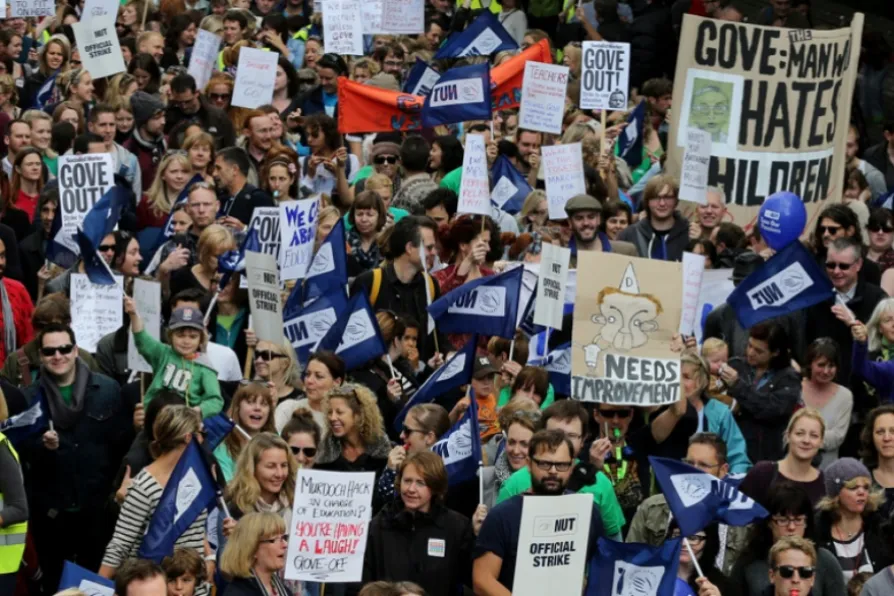
 Members of the National Union of Teachers and the NASUWT march through Brighton back in 2013
Members of the National Union of Teachers and the NASUWT march through Brighton back in 2013
TEACHERS have voted to consider strike action if the government refuses to offer a serious pay rise following years of real-terms cuts.
The fact that delegates at both teacher conferences that took place over the Easter weekend — the NASUWT’s in Birmingham and the National Education Union NUT section’s in Brighton — were prepared to risk taking this step demonstrates how widespread anger is among education professionals.
That’s hardly surprising. An OECD study last autumn found that teachers’ pay had shrunk 12 per cent in real terms between 2005 and 2015.


















